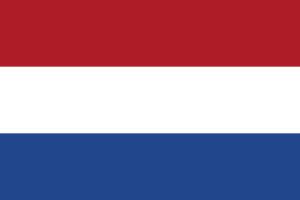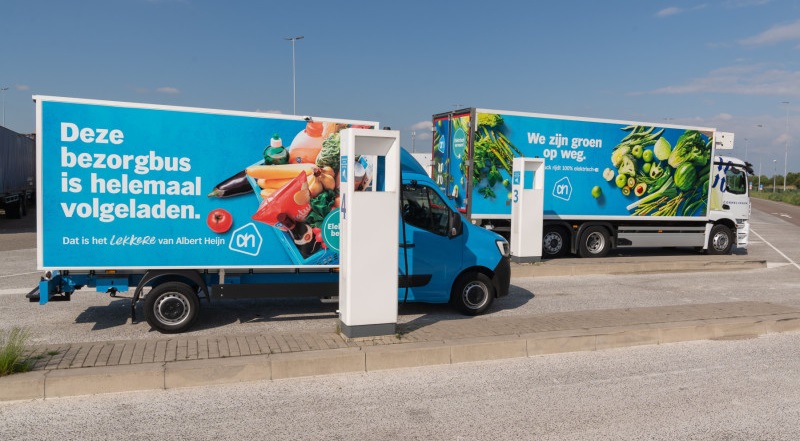Albert Heijn opened a new charging plaza at its distribution center in Pijnacker.
The supermarket has a total of 270 charging stations for 74 trucks and 250 delivery vans in the Netherlands, making it the retailer with the largest electric vehicle (EV) fleet in the country.
Albert Heijn already covered 2.5 million kilometers electrically last year and aims to double this figure by 2024.
This effort is part of the supermarket’s commitment to delivering emission-free to all customers and stores in the Netherlands and Belgium by 2030.
Additionally, Albert Heijn is the first European retailer to offer sustainably generated energy to strategic partners, a crucial step towards achieving a 45 per cent reduction in CO2e emissions in scope 3 emissions.
“Albert Heijn’s mission, is our compass for making a meaningful contribution to a healthier, more social, and more sustainable society,” says Rob Heesen, Director of Business Development & Partnerships of the company.
“That’s why we work closely with partners to significantly reduce CO2e emissions and solve challenges in the energy transition. With a climate goal of net-zero by 2050 throughout the chain, from land to customer, we embarked on this journey in 2017 with our first electric truck,” he adds.
After the four major cities, Albert Heijn is now also supplying Gouda, Leiden, and Delft, as well as all 32 stores in the environmental zone of Rotterdam, electrically.
This is done from the distribution center in Pijnacker.
Home delivery in these regions is also electric.
In the second half of 2024, another ten cities will be added, including Amersfoort, Assen, Nijmegen, Maastricht, Zwolle, Deventer, Tilburg, Dordrecht, Apeldoorn, and Eindhoven.
This puts the supermarket ahead of Zero Emission legislation.
Albert Heijn is the 1° European retailer to make sustainable energy accessible for the entire chain
Since 2010, Albert Heijn has been (re)building its own stores into gas-free stores: 95 per cent are now off gas.
From 2021, Albert Heijn only uses Dutch wind energy.
In addition to all these initiatives, since December 1, 2023, all Albert Heijn partners have switched to green power.
This represents significant progress towards the ambition of a 45 per cent reduction in CO2e emissions compared to 2018 and achieving net-zero emissions by 2050.
Albert Heijn also invests in its own energy generation, including the installation of 50,000 solar panels on the roofs of distribution centers, Home Shop Centers, and stores.
To achieve a completely carbon-free energy chain, energy from new sustainable sources is needed.
To accomplish this, Albert Heijn is working on initiatives to reduce emissions in its own operations and those of suppliers.
Therefore, the firm will source a large portion of its future sustainable energy needs from the most ecological wind farm in the North Sea, Ecowende.
The partnership with Eneco for this purpose was announced earlier.
This partnership is now expanding so that Albert Heijn becomes the first European retailer to provide its partners, suppliers of fresh products, access to this sustainably generated energy from the Ecowende wind farm.







